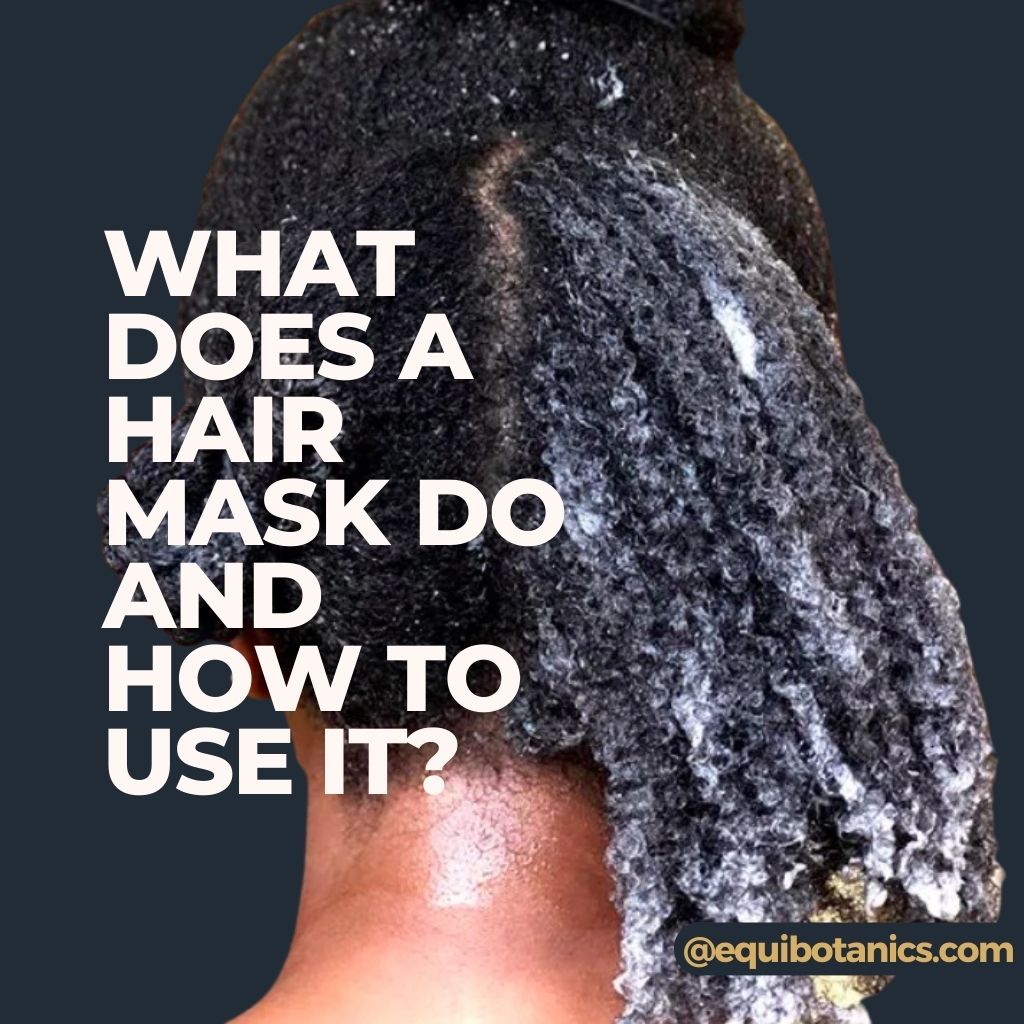
Sometimes hair needs a bit more than the standard shampoo and conditioner treatment…enter hair masks. There is something for all hair types with this hydration focused product type, but to find the one that’s right for you, you’ll first need to identify what it is your hair really needs. From moisture injections and damage repair to banishing frizz and scalp protection, they’ve truly got all hair concerns covered!
What is a hair mask?
A hair mask is basically a powered-up version of conditioner. The two are very closely related with similar restorative properties, however hair masks and conditioner are not the same product and both play an important role in your haircare life. A hair mask is different in that it is far more targeted and penetrates the hair on a deeper level.
Masks tend to be formulated with super nourishing ingredients such as oils, butters and other ingredients known for their hydration and restoration properties, for example our hair mask is made up of a range of oil and butters, but in particular babassu oil. Hair is placed under a huge amount of stress from lifestyle factors including hair styling, heat exposure and environmental damage. All of these issues can affect hair health, but regular use of a hair mask can restore locks to their former glory and make them more manageable in the long term.
Hair masks tend to target specific hair concerns, nevertheless even applying one to healthy locks is beneficial as all hair needs moisture to maintain its condition meaning the addition of a hair mask is necessary for all!
Hair Mask Benefits
There is little a hair mask can’t do when it comes to the health and condition of your locks. Hair mask benefits include:
- Restoring hydratioeqn and moisture
- Volumising
- Repairing damage

- Strengthening

- Smoothing
- Taming frizz
- Scalp protection
- Boosting shine and softness
- Supporting a healthy scalp
- Maintaining hair colour
The advantages to using a hair mask really are plentiful however, this isn’t a treatment for daily use. If you overuse a hair mask you may start to see negative results. This is particularly the case for those with fine hair which can suffer from a flat, bounce-less look if weighed down by too much product. It is also possible to over-hydrate hair which can lead to breakages.
How often should you use a hair mask?
Aiming to use a hair mask once a week would be ideal for most hair types, however, if you suffer with dry or damaged hair then increase this to 3 times a week until hair is restored to a healthy place. People with fine hair may find once a week is still too much, particularly if hair is lacking volume; in this case, reduce usage down to 2-3 times a month.
How to use a hair mask?
Hair masks are a simple item to add into your hair washing routine. The optimum way to apply a hair mask is to clean, wet hair. The results will not be the same if you apply a hair mask to dry or dirty hair as it is not in the same porous state as wet tresses.
Some people wonder if they should use a hair mask instead of conditioner; however this is dependent on hair type and condition. Although the two products are similar, they do offer different functions and a hair mask is able to penetrate hair follicles far more deeply than rinse out conditioner can.
If you have fine hair, use a hair mask instead of conditioner. Skipping the conditioner step when masking will avoid a moisture overload which can lead to flat hair and, on occasion, breakages. For those with thick or damaged hair, moisture is your locks best friend so stick with both!
Hair mask application: a step-by-step guide
- Wash hair as usual with shampoo and then squeeze excess water out of the hair.
- As the hair follicles are more open after shampooing, go in with a hair mask as the follow up product and wait out the specified time (normally between 10 and 20 minutes).
- Once the time is up, rinse out and apply conditioner. Wait a further few minutes and do a final rinse.
- Use a microfibre towel to gently squeeze out excess water- avoid a standard towel as this can damage hair follicles causing breakages and split ends.
- Style as usual and see immediate results from the very first use.
What hair mask should I use?
To choose the hair mask that works best for your hair, first identify what hair type you have and what your locks need to be healthy again.
Greasy hair- if you suffer with greasy hair, you need to look for something lightweight that will absorb excess oils. Clay based masks, or those with a gel texture, are a great option as is a mask containing aloe vera which is known to help with the scalp’s sebum production.
Afro or curly hair- Afro and curly hair are similar in that the natural helix shape of strands makes it challenging for moisture to travel down the hair shaft meaning that both these hair types are prone to breakages. Try the Babassu Deep Treatment Hair Masque for a serious moisture injection that leaves hair looking and feeling great.
Thick hair- probably the only hair type not in danger of being overhydrated. Dryness and frizz are common traits of thick locks as well as plenty of serious knots! Choose a mask that screams intensive moisture such as the Black Seed Oil Hair Elixir. This treatment can even be left on overnight for the ultimate shot of hydration.
Coloured hair- When hair has been coloured it needs extra care as the chemicals used to dye it can damage locks and leave it seriously dehydrated. Look for a mask that specifically works for colour treated hair as this will be formulated to protect colour and prolong its life as well as nurture hair.
Dry, damaged hair- If hair is damaged and prone to breakages, it needs something both nourishing and strengthening. Opt for a moisture rich product, such as the Marula Leave In Conditioner, that targets hair damage as this will work harder to penetrate the hair shaft, delivering much needed respite and nutrients to ravaged locks.
Frequently asked questions
Can I use a hair mask on oiled hair?
It is not recommended to use a hair mask on oiled hair as this layer of oil will prevent the mask from being properly absorbed. Apply any oil-based products after your hair mask treatment is complete.
Do hair masks thicken hair?
Hydrating hair masks will help to give the appearance of thicker hair by plumping hair strands with moisture and encourage voluminous locks that are full of body.
Do hair masks help with hair growth?
For a hair mask to help with hair growth, it will very much depend on the ingredients it contains. Look for ingredients such as Black Seed Oil that helps to stimulate follicles and encourage blood circulation. Restorative hair masks with strengthening qualities will help reduce and repair breakages.
Shine on
Now you are armed with the hair mask facts, it is the perfect time to add one straight into your hair care routine. Be sure to apply at least once a week to start seeing results. Protect, repair and strengthen your locks with an ultra-nourishing, shine inducing mask that will hug your hair back to health!





